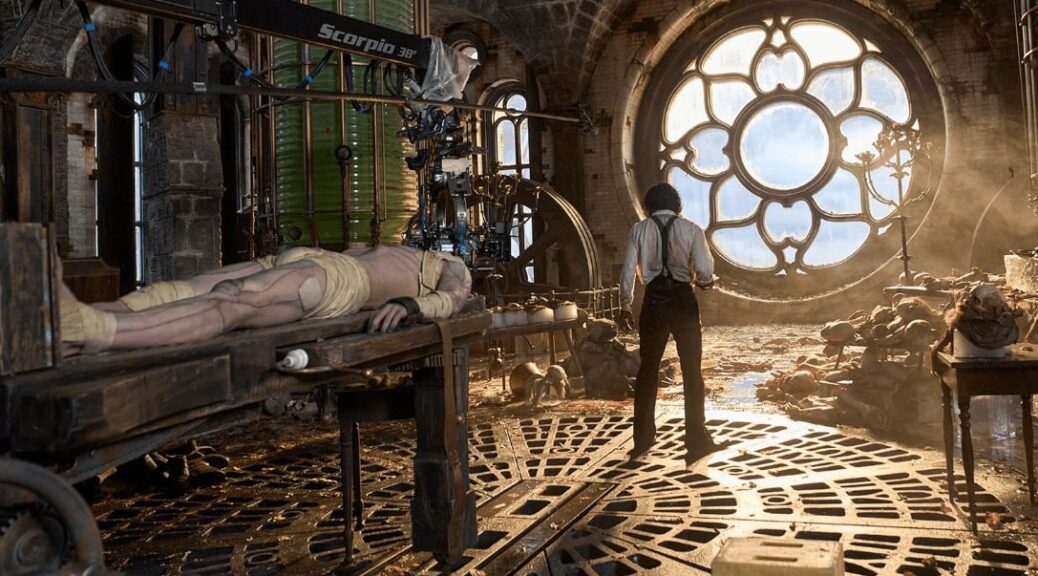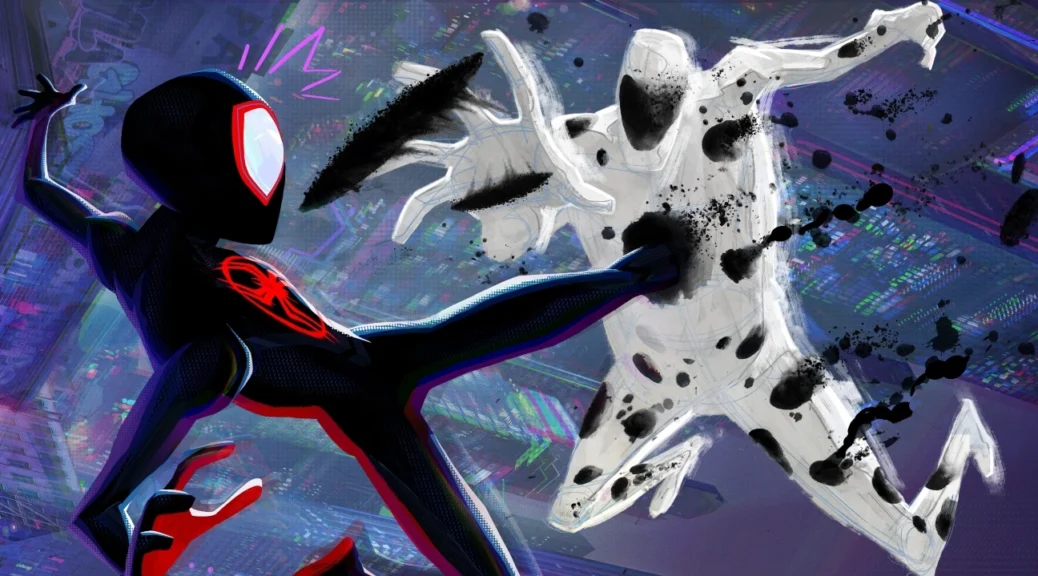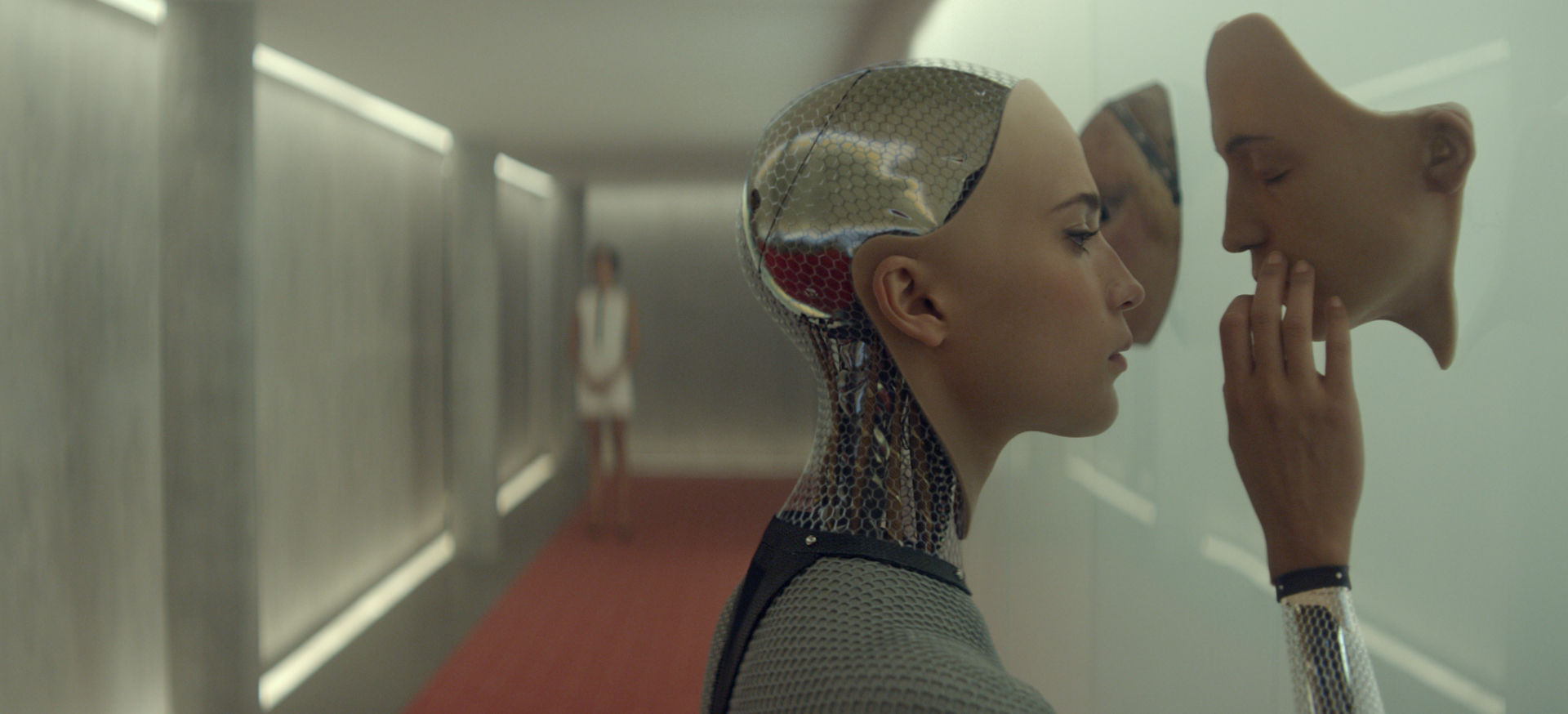Frankenstein
by Hope Madden
Guillermo del Toro is a big ol’ softy. In many ways, that’s what makes Frankenstein a perfect property for him. His heart has always been with the monster, so why not tell the most heartbreaking and terrifying monster story?
The filmmaker shares writing credit with Mary Shelley, and it’s a good partnership. From the opening moments on frozen tundra, GDT announces that he will cover more of the novel’s ground than any other adaptor. We meet Victor Frankenstein (Oscar Isaac) lying helpless on that ice. An explosion draws the crew of an icebound ship to his aid. But Victor is not alone, and soon he begins his yarn of the beast that circles the vessel.
The icy desolation looks fantastic, but the North Pole has nothing on the macabre Victorian splendor the maestro has in store. Lush and gorgeous, even when it is running with blood, the world del Toro creates for his gods and monsters is breathtaking. The way he punctuates images with red—a billowing veil, the doctor’s gloves, a tie, a kerchief—beguiles and alarms in equal measure.
His idea of a mad scientist’s lab is a gloriously goth work of art, as is the film’s costuming—particularly the wardrobe for dear Elizabeth (Mia Goth). The wild mix of colors and textures, metallics and gauzes, conjure ideas of nature and machine in gorgeous disharmony.
It is with the b-story, focusing on Elizabeth and her uncle (Christoph Waltz), where GDT veers most widely from Shelley’s text. The choices are fresh and odd, allowing for a rich image of creator and creation, the natural versus the magnificent.
Isaac is a marvel of angry arrogance made humble. As his creature, the long and limby Jacob Elordi offers a monster who’s more sensitive son than wounded manchild.
Goth delivers the same uncanny grace that sets so many of her characters apart, and del Toro’s script allows Elizabeth an arc unlike any previous adaptation.
Frankenstein is over long. Del Toro spends more time than necessary with young Victor, and the b-story could have used trimming. You feel the film’s length. It’s also as sentimental a movie as del Toro’s ever made, sometimes to its detriment.
But you don’t wander into a Guillermo del Toro film expecting less anything than glorious excess—another reason why Frankenstein and he were meant for one another.












